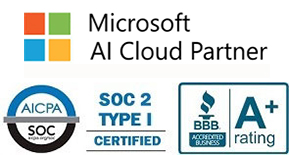
The world of business is always evolving, and these days, almost all companies operate online to some degree. Every one of these companies is exposed to a level of risk.
Cybercrime has become a major threat in the modern world, and every year, that threat worsens. If you have a small business in New Jersey, you need to ensure it's properly protected. As such, it's vital to have a suitable cyber security system in place.
To do this, you need to start by figuring out your needs. A small business cyber security audit is an effective way to determine how secure your business is.
In this guide, we'll dive into cyber security audits so you can get a better understanding of what they involve. Keep reading for more.
The Importance of Cyber Security
The use of the Internet for business operations increases every year. As IT developments improve, the rate of cybercrime increases. Experts estimate that it will cost the world about $10.5 trillion per year by 2025.
A cyber attack can be devastating for a business. It may lead to serious financial loss and a huge drop in trust among customers, making growing your business nearly impossible. In bad cases, it can even result in closure.
What Is a Cyber Security Audit?
A business cyber security audit is an assessment that covers all systems that are accessible through the internet. The purpose is to identify gaps in security and ensure compliance.
By evaluating your current security landscape, you can determine the best actions to take to make improvements. There are five core aspects that a cyber security audit covers:
1. Operations
This looks at the operational framework's cyber security policies, controls, and practices. Your operational security should protect infrastructure assets' administrative, procedural, and functional assets.
2. Network Security
Network security relates to any systems and resources that can be accessed via the Internet. This part of the audit assesses network availability, infrastructure security, device access control, and the performance of network assets.
3. Data
This analyzes the tools and measures in place that protect the authenticity, confidentiality, and integrity of data on your network. On top of security practices, this looks at TSL encryption, authentication, and authorization controls.
4. System
System security is all about your network's hardware, operating systems, and other infrastructure. This includes device access management, patching processes, and elevated permissions management.
5. Physical Security
Physical security covers controls and actions that dictate access to software, hardware, and application data. Some of the elements here include access control, surveillance procedures, and physical disk backups.
Types of Cyber Security Audits
There are two main types of cybersecurity audits. They're defined by who conducts the audit.
Internal
This is an in-house audit to evaluate an organization's cyber security system. It will help your internal IT team understand what flaws or gaps exist as well as what can be done to improve things.
It can be a cost-effective solution and offers a high degree of control so you can customize it to suit your business. This isn't viable for a lot of small businesses, however, as technology, resources, and capabilities are often quite limited.
External
An external audit involves hiring a third-party company to conduct the audit. A professional cybersecurity company can look at your business's entire network to assess security controls, security gaps, and regulatory compliance.
An external company will often provide the best results as they have a high level of skill and training. They tend to be very efficient and will adhere to regulatory and compliance frameworks.
Benefits of Cyber Security Audits
A cyber security audit takes some time and money, so some business owners think it's better not to bother. The risks, however, heavily outweigh the costs. There are several benefits to performing a cyber security audit on your business.
Highlights Gaps in Security
One of the key purposes of a cyber security audit is to identify any gaps or weaknesses in your security. Cybercriminals could exploit these and do a lot of harm.
Once you know what weaknesses are present, security analysts can develop a risk management strategy to improve your protection. Without taking such precautions, you may leave your business exposed.
Helps Meet Compliance
Regulations exist for all enterprise systems, and these are dictated by security compliance frameworks and governance institutes. These frameworks guide required compliance audits that help minimize the legal risk of companies. Compliance audits will highlight any compliance issues so you can make sure you're doing things by the book.
Enforces Business Continuity
If you fall victim to a cyber attack, it could bring your business to a halt. Through cyber security audits, you can ensure you have suitable security mechanisms so that you can reduce the risk of such attacks and regain control of your systems if any occur. This will help ensure you can keep operating as normal to minimize losses.
Improves Reputational Value
A successful cyber attack on a business can have a huge impact on reputation. Customers will lose trust, especially if their personal details are compromised.
Cyber security audits help ensure you can protect customer data. This will help improve your reputation and give you an edge over your competitors.
Powers Organization-Wide Cyber Security Awareness and Training
With the results of a security audit, you can lay out any potential risks and exploits. You can then distribute relevant information throughout your organization.
Human error is one of the biggest risks in terms of cyber security. Ensuring all of your staff understand what risks are present will help them understand what to do (and not do) to keep your business, your employers, and your customers safe.
Ensuring Protection With a Small Business Cyber Security Audit
A small business cyber security audit may not seem overly important, but it can make the difference between success and failure for your business. It will show you what gaps there are in your security so that you can deal with them before any criminals launch an attack.
Integrated Computer Services can provide professional cyber security audits as well as a range of other IT services. We've been in business for over 20 years and can provide security monitoring 24/7/365 to businesses in the NJ area. Get in touch with the ICS team today to find out more about how we can help your business.
About Us:
- 150+ 5-Star Google Rated IT Firm
- Microsoft Certified Cloud AI Partner
- SOC II Certified Managed Service Provider
- Better Business Bureau A+ Rated






